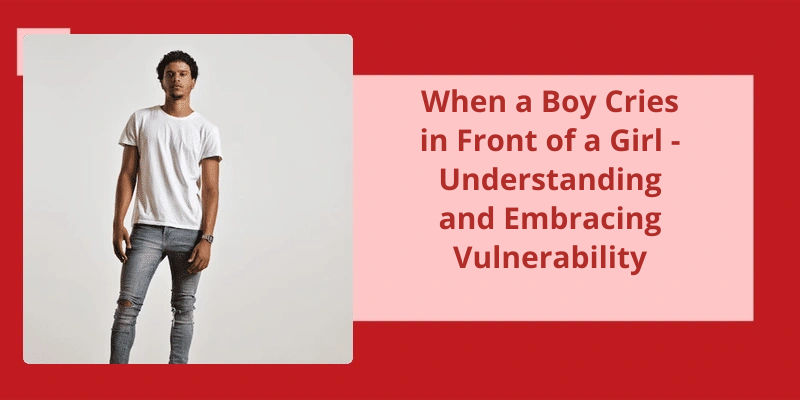Tend to value emotional intimacy, acts of service, and receiving gifts as expressions of love. These varying preferences reflect the complex nature of human emotions and relationships, highlighting the importance of understanding and appreciating the nuances of how love is felt and expressed by different genders. While societal norms and stereotypes may play a role in shaping these preferences, it’s crucial to recognize and respect individual differences, allowing for a deeper understanding and connection within romantic relationships. Ultimately, the question of whether guys and girls feel love differently can be answered with a resounding yes, as individuals navigate the labyrinth of love in their own unique ways.
Does Love Feel Different for Men?
Tend to prioritize emotional connection, communication, and acts of service. This isn’t to say that men don’t seek emotional connection or that women don’t desire physical affection, but there are commonly observed patterns in how each gender experiences and expresses love.
For many men, physical affection plays a significant role in feeling loved and connected. This can include gestures such as hugs, kisses, or even simply holding hands. Physical touch has the power to convey intimacy and reassurance, making men feel valued and cherished in their relationships. Additionally, quality time spent together is often essential for men to feel loved. Engaging in shared activities, going on adventures, or simply enjoying each others presence can create a strong sense of emotional connection.
Words of affirmation are another key way that men often feel loved. Compliments, encouragement, and expressions of admiration can go a long way in making men feel appreciated and secure in their relationships. These verbal affirmations hold significant weight and can be seen as acts of love.
On the other hand, women often value emotional connection and communication as primary aspects of feeling love. Open and honest conversations, where emotions are shared and understood, can deepen the bond between partners. Women often seek reassurance and validation through empathetic listening and understanding, which helps them feel loved and cared for.
Acts of service can also be significant for women in feeling loved. When their partner takes the initiative to help with household chores, run errands, or provide support during challenging times, women often interpret these actions as gestures of love and appreciation.
It’s important to remember that these observations aren’t set in stone, as love and how it’s felt can vary greatly between individuals. By recognizing and respecting these differences, men and women can create stronger connections and a more harmonious bond based on mutual understanding and love.
The Influence of Attachment Styles on How Men Experience and Express Love
- Secure attachment style: Men with a secure attachment style feel comfortable with emotional intimacy and are more likely to express love openly and affectionately.
- Avoidant attachment style: Men with an avoidant attachment style tend to be emotionally distant and avoid getting too close in relationships. They may have difficulty expressing love and may suppress their feelings.
- Anxious attachment style: Men with an anxious attachment style are often overly concerned about their partners’ feelings and behaviors. They may be more likely to express love in a clingy or needy manner.
- Disorganized attachment style: Men with a disorganized attachment style may have a mix of avoidant and anxious tendencies. They may struggle with expressing love and may exhibit inconsistent or unpredictable behaviors in relationships.
- Impact on relationships: Men with different attachment styles may experience and express love differently in romantic relationships. Understanding attachment styles can help partners navigate potential challenges and foster healthier connections.
- Cultural and individual differences: It’s important to note that attachment styles can be influenced by various factors, including cultural and individual differences. Therefore, not all men with the same attachment style may necessarily exhibit identical experiences or expressions of love.
Each individual’s journey of falling in love is unique, shaped by their distinct perspectives, emotions, and life experiences. As such, it’s hardly surprising that the way people perceive and experience romantic love can vary significantly from one another. From personal encounters, it’s evident that falling in love holds a diverse range of feelings and expressions for different individuals.
Does Falling in Love Feel Different for Everyone?
Falling in love is a deeply personal and subjective experience. While there may be some commonalities in the way people feel love, it’s undeniable that individuals have unique perceptions and expressions of this complex emotion. Factors such as personal history, cultural upbringing, and individual personality traits can all influence how a person experiences and interprets love.
This passionate type of love can make them feel alive, consumed by their feelings, and completely devoted to their romantic partner. On the other hand, some people may experience a more subtle and gradual form of love, characterized by a deep sense of companionship, friendship, and emotional connection. They may prioritize stability and compatibility over intense passion.
Societal expectations and gender roles can also play a role in shaping how guys and girls perceive love. Historically, men have often been encouraged to be more stoic and emotionally guarded, while women are expected to be more nurturing and expressive. These gendered expectations might influence both conscious and unconscious beliefs about what love should feel like and how it should be expressed.
It’s important to note that generalizations about how guys and girls feel love differently can be misleading since individuals within each gender can have their own unique experiences and preferences. Some men may be more emotionally expressive than others, just as some women may prefer a less intense, more independent form of love.
Factors such as personal history, cultural influences, and individual personality traits all contribute to these differences. It’s important to approach love with an open mind and recognize that there’s no one-size-fits-all answer to how guys and girls feel love.
According to a psychologist from Pennsylvania State University, Marissa Harrison, there seems to be a pattern in how different genders experience love. She suggests that women tend to approach love with caution, while men have a tendency to dive in headfirst. Let’s explore this idea further and uncover the reasons behind these contrasting perspectives on love.
Which Gender Falls in Love Harder?
When it comes to matters of the heart, gender differences can play a significant role in how individuals experience and express love. According to psychologist Marissa Harrison from Pennsylvania State University, it’s commonly believed that women tend to approach love with a sense of caution, while men have a propensity to fall in love quickly and deeply.
Harrisons research suggests that women are generally more deliberate and cautious in matters of love. They often take their time to assess a potential partners compatibility and evaluate whether the relationship has a strong foundation. This cautious approach allows women to better protect themselves from potential heartbreak or disappointment.
On the other hand, men often find themselves falling in love rapidly and intensely. They may be more driven by emotions and passion, leading them to dive headfirst into relationships without much consideration for potential risks. This tendency to fall hard and fast can make men more vulnerable to heartbreak and disappointment.
Interestingly, these differences may be attributed to evolutionary factors. Evolutionarily, women may have a greater need to be discerning and cautious in selecting a mate who can provide protection, stability, and resources for potential offspring. Men, on the other hand, may be driven by a desire to spread their genetic material and seek out potential sexual partners.
It’s important to note that these generalizations may not apply to every individual. Not all women are cautious when it comes to love, and not all men fall rapidly and intensely. Love is a complex and multifaceted emotion that can vary greatly between individuals, regardless of gender.
While there are patterns and tendencies in how men and women experience and express love, it would be oversimplifying to claim that one gender falls in love harder than the other. Love is a deeply personal and subjective experience that’s influenced by a myriad of factors, including personal history, culture, and individual differences. Each persons journey in love is unique, and it’s important to approach the topic with an open mind and a recognition of the diversity of human experiences.
The Influence of Personality Traits on Love and Relationships
- Introverts and extroverts often have differing communication styles in relationships.
- Highly neurotic individuals may struggle with trust and insecurity in love.
- People with high levels of openness tend to be more adventurous and open-minded in relationships.
- Individuals with low agreeableness may have difficulty compromising and resolving conflicts.
- Conscientious people are typically more reliable and organized partners.
- Empathy plays a crucial role in deepening emotional connections between partners.
- Self-esteem and self-confidence can impact how individuals perceive and approach relationships.
- Attachment styles, such as anxious or avoidant, strongly influence the dynamics of romantic relationships.
- Personality compatibility can contribute to the long-term success and satisfaction of a relationship.
- Cultural and societal influences also shape individual beliefs and behaviors in love and relationships.
Love is a complex and multifaceted emotion that can never be replicated from one person to another. Each connection we develop carries it’s own distinct essence, making it impossible to simply replace one with another. Today, I came to the realization that love can feel uniquely different, depending on the individual we share this profound sentiment with. There are certain relationships, such as the bond between siblings, that are irreplaceable and hold a special place in our hearts.
Does Love Feel Different to Different People?
There’s something inherently irreplaceable about the love and bond we share with different individuals in our lives. It’s a realization that dawned on me today, that no matter how much love we may feel for someone, it can never quite replace the love we’ve for someone else. This is because each person is unique, and our connections with them are shaped by varying factors such as shared experiences, personalities, and emotional connections.
For instance, no one will ever be able to replace the role of a sibling in our lives. The bond between siblings is often one of the strongest and most enduring, rooted in a deep understanding and shared history. This love feels different and special, as it encompasses a lifetime of memories, support, and familiarity. It’s a connection that can’t be replicated or replaced by another person.
Similarly, romantic love also varies from person to person. The way we experience love in relationships differs based on our individual needs, desires, and compatibility. What may make one person feel loved and cherished may be completely different for another. It’s the unique qualities and experiences we’ve with our romantic partners that shape the way love feels for us.
Furthermore, the love we feel for friends, mentors, or even pets is distinct in it’s own right. These relationships provide different forms of emotional support, understanding, and companionship that fulfill a unique space in our lives. The love we’ve for our friends may feel different from that of a romantic partner, as it’s rooted in a sense of camaraderie, shared interests, and mutual respect.
The Role of Cultural and Societal Expectations in Shaping Our Understanding of Love
- Love has been shaped by cultural and societal expectations throughout history.
- Cultural norms often dictate who we can love and how those relationships should be expressed.
- Societal expectations may create pressure to conform to certain ideals of love.
- Love defined by cultural expectations may differ greatly across cultures.
- Some societies prioritize arranged marriages and family connections over individual desires.
- Media and popular culture influence our understanding of love and what’s considered desirable.
- Expectations around gender roles and expectations may influence how love is perceived and expressed.
- Cultural and societal expectations can also perpetuate harmful stereotypes and discrimination.
- Challenging cultural and societal expectations is important for creating more inclusive and authentic definitions of love.
Source: Does the feeling of being in love feel different each time …
Love is a complex and ever-changing emotion, and it’s often said that no two loves are the same. Attraction and affection evolve over time, leading to different experiences with each person we encounter. However, maintaining love requires effort and dedication, as love can also be a challenging and intricate journey.
Does Love Feel Different With Each Person?
Love is a complex and multifaceted emotion that can vary greatly from person to person. Each individual brings their own unique experiences, perspectives, and emotions to a relationship, which can greatly influence how they feel and experience love. The way love feels can be influenced by factors such as past experiences, personality traits, and attachment styles.
Attraction and affection don’t stay the same throughout a relationship. In the early stages, infatuation and passion may dominate, creating intense feelings of excitement and desire. As the relationship progresses and deepens, feelings of love often evolve into a more stable and enduring form. This can manifest as feelings of warmth, trust, and a deep sense of emotional connection.
It’s important to note that love can also feel different depending on the specific dynamics and qualities of the relationship. Factors such as compatibility, shared values, and communication styles can all contribute to how love is experienced between two people.
Regardless of how love is experienced, it requires effort to sustain and nourish. Relationships inevitably go through ups and downs, and it’s important to recognize that love isn’t a static state but a continuous journey. It requires ongoing communication, understanding, and compromise to keep love alive and thriving.
Tara explains. It’s a deep connection that goes beyond physical attraction and involves a strong emotional bond. Men who experience true love often describe feeling a sense of peace, happiness, and contentment when they’re around their partner. It’s a feeling of complete acceptance and understanding, where they can be their authentic selves without fear of judgment. True love for a man means having a partner who supports and encourages their goals and dreams, and someone they can rely on during both the ups and downs of life.
What Does True Love Feel Like for a Man?
Tara explains. For a man, true love is often marked by a deep sense of security and contentment with their partner. It’s a feeling that goes beyond physical attraction and encompasses a strong emotional connection.
Men in love often experience a sense of calm and stability when they’re with their partner. They feel a deep level of trust and can truly be themselves around their loved one. This feeling of acceptance and understanding creates a foundation of love and support that’s essential for a healthy relationship.
They’re willing to put their loved ones needs and happiness above their own and make compromises to ensure the success and well-being of the relationship. This selflessness is a testament to the depth and strength of their love.
The Impact of Past Experiences on a Man’s Ability to Experience and Express True Love.
- The importance of past experiences in shaping one’s ability to love
- How childhood traumas can affect a person’s ability to trust and open up emotionally
- The role of past relationships in influencing one’s expectations and behaviors in love
- Overcoming past hurts and building a foundation for healthy love
- Healing and personal growth as essential steps towards experiencing true love
- Understanding and addressing attachment issues stemming from past experiences
- Cultivating self-love and self-worth as a prerequisite for loving others
- Developing empathy and emotional intelligence to foster deeper connections
- The significance of communication and vulnerability in experiencing authentic love
- Recognizing and breaking unhealthy patterns from past experiences
Conclusion
These distinctions in feeling and perceiving love may stem from societal expectations and gender norms, but they can also be deeply personal and unique to each individual. Recognizing and understanding these differences can help foster healthier relationships, promote better communication, and ultimately create a more empathetic and inclusive understanding of love. It’s essential to remember that these gendered tendencies aren’t absolute, and there’s significant variation among individuals. By embracing and embracing these nuances, we can work towards a more harmonious and fulfilling experience of love for all genders.






